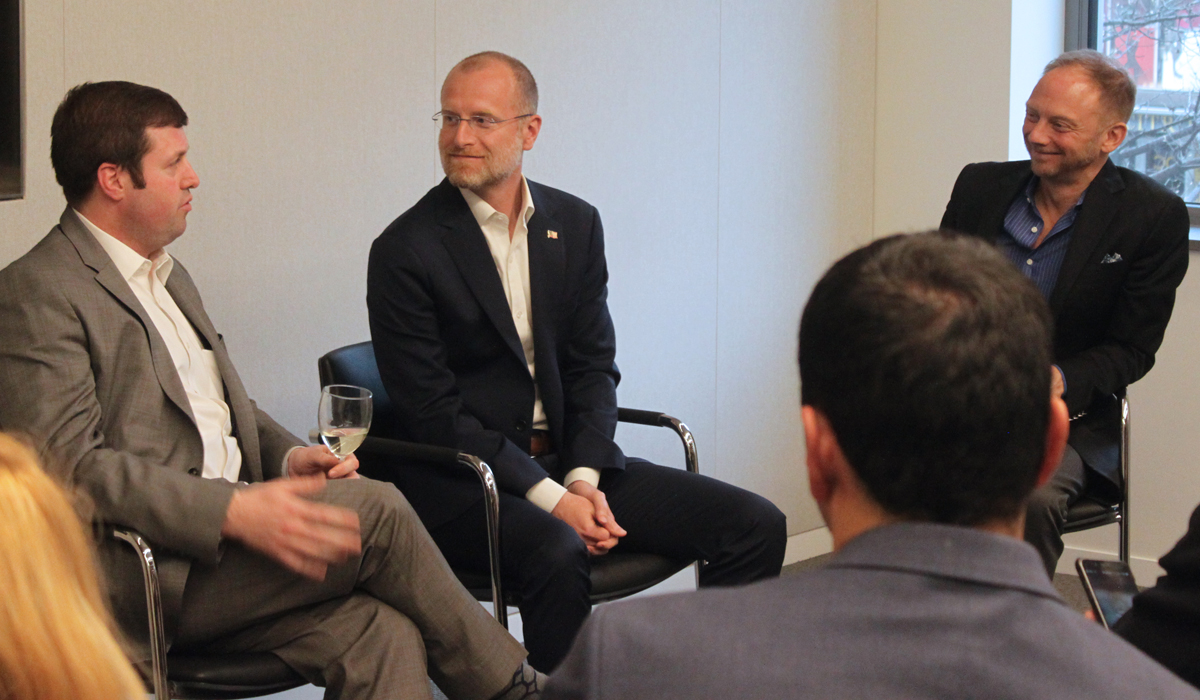Required Courses
- Legislation - Regulation or Administrative Law
- Technology & Communications Law Practicum
One of the following:
- Cyberlaw
- Artificial Intelligence Law & Regulation (can be taken as a required course for the Communications/Data Privacy track instead of Information Privacy (which is not being offered this year) or can be taken as an elective for either track)
Elective courses
Three required; Must be different from the courses used to fulfill the Required Courses — e.g., Copyright law cannot count as both a Required Course and an Elective; note that not every course listed as an elective will be a course focused on intellectual property law topics, but may, rather, be a course focused on topics complementary to intellectual property law. If there are other courses that are not included on the electives list, but you would like to take and believe would supplement your LTI coursework, you should contact Dean La Belle or Professor Winston to explore that possibility.
- Agency Partnership
- Antitrust
- Art Law
- Artificial Intelligence Law & Regulation (new course offering)
- College Athletics and the Law (new course offering)
- Compliance & Corporate Responsibility
- Copyright Law
- Cyberlaw
- Digital Assets/Cryptocurrency
- e-Discovery
- Entertainment Law
- Federal Regulation of Food and Drugs
- Free Speech in Universities (new course offering)
- Government Contracts
- Information Privacy (not offered this year)
- In-House Counsel
- Intellectual Property Transactions (offered 2025 Spring)
- International Communications Law
- International Intellectual Property Law
- Introduction to Intellectual Property Law
- Legal Aspects of Social Media
- Legal Drafting Seminar – Contract Drafting
- Legal Drafting Seminar – Legislative Drafting
- Legal Drafting Seminar - Litigation Drafting
- Lobbying and the Law
- Music Law
- National Security Law and Policy Seminar
- Patent Law
- Patent Prosecution
- Remedies
- Space Law
- Sports and the Law
- Trademarks and Unfair Competition
Transition to Practice
One required; choose one from the following courses unless fulfilling this requirement with a clinic. If there is a transition to practice course that is not included on the list but you would like to take, you should consult with Dean La Belle or Professor Winston to consider the possibility.
- Estate Planning Practicum
- Legislation: The Making of a Federal Statute
- Negotiations: Theory and Practice
- Public Policy Practicum
- Separation of Powers Clinic (new course offering)
- Technology & Communications Law Practicum
- Trial Practice
Externship Opportunities
externship focused on communications/data privacy law with an organization outside the Law School
and are strongly encouraged to complete at least one additional communications/data
privacy law-focused externship during their course of study. With permission of the directors, current
full-time communications/data privacy work experience may be used to fulfill the externship
requirement. The following is a partial list of organizations where students have served in externships:
- Department of Commerce
- Department of State
- Committee on Energy and Commerce
- Estate Planning Practicum
- Executive Office of the President of the United States
- Federal Communications Commission
- Federal Trade Commission
- NTIA Department of Justice
- Office of Science and Technology Policy
- Subcommittee on Communications Technology
- U.S. House of Representatives
Associations and Public Interest Organizations
- CTIA - The Wireless Association
- Electronic Frontier Foundation
- Electronic Privacy Information Center
- Future of Privacy Forum
- National Association of Broadcasters
- National Public Radio
- National Security Counselors
- Network Advertising Initiative
- Newspaper Association of America
- Personal Communications Industry Association
- Public Knowledge
- Radio Television News Directors Association
- Recording Industry Association of America
- Reporters Committee for Freedom of the Press
- Telecommunications Industry Association
Businesses
- AT&T
- Comcast
- Fox Television Stations, Inc
- Mobile Satellite Ventures
- National Geographic Channel
- NBC-Universal
- Nokia T-Mobile
- Verizon
Law Firms
- Arnold and Porter
- Fletcher Heald & Hildreth
- Lampert, O'Connor, Johnston P.C.
- Latham & Watkins
- Venable LLP
- Wiley Rein LLP
- Wilkinson Barker Knauer
- Willkie Farr & Gallagher LLP

